
Crime and thrillers roundup
The best recent crime and thrillers
by Laura WilsonThe Guest List by Lucy Foley; The Better Liar by Tanen Jones; The Temple House Vanishing by Rachel Donohue; The Memory Wood by Sam Lloyd; and GBH by Ted Lewis
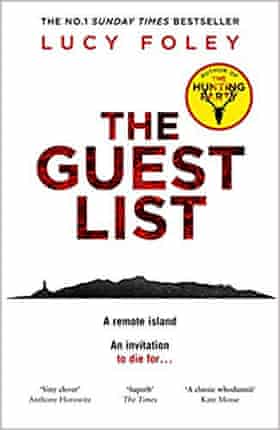
Like Lucy Foley’s bestselling first foray into the crime genre The Hunting Party, The Guest List (HarperCollins, £12.99) is a very enjoyable updating of the golden age “closed world” mystery – another group of posh people, several of whom have secrets to hide, in a remote location. This time, it’s Cormorant Island, “a lump of granite emerging majestically from the Atlantic, several miles off the Connemara coastline”. Mostly peat bog, and only accessible by boat, it’s the hideaway setting for the fancy wedding of online magazine publisher Jules and her TV-star fiance Will. The wedding planner, the bride, the bridesmaid, the best man and plus-one Hannah take turns to narrate as a toxic brew of entitlement, one-upmanship, tanked- up ex-public schoolboys and past tragedies comes to a dangerous boil while a storm blows in. The plot may be overly dependent on fairly thumping coincidences, but a terrific sense of place, deft characterisation and sheer page-turnery more than compensate.
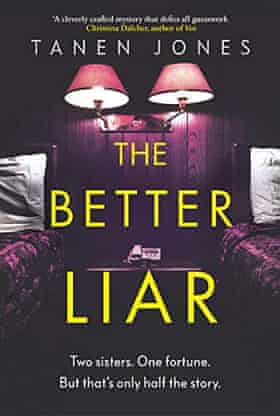
In American author Tanen Jones’s first novel, The Better Liar (Harvill Secker, £12.99), Leslie Flores needs to find her sister Robin, who absconded from the family home a decade earlier as a teenager. If she doesn’t, she won’t get her inheritance: their father’s will stipulates that the women must appear together at the lawyer’s office in order for the money to be released. When Leslie tracks her prodigal sister down to a scruffy rented room in Las Vegas and discovers a corpse with a fake ID, she flees. On meeting waitress and aspiring actor Mary, who bears enough resemblance to Robin for superficial changes to make her a plausible substitute, she offers a deal: her sister’s share of the loot in exchange for a successful impersonation. Leslie, for reasons known only to herself, is desperate for the cash, and Mary wants to start over, so if the pair can pull off the con it’s win-win, and Mary accompanies Leslie back to Albuquerque to meet her husband and infant son. It should be plain sailing, but both women have secrets ... Although the big reveal isn’t wholly convincing, there’s plenty of tension. Jones is strikingly good on emotional legacies, how – as Larkin didn’t quite put it – woman hands on misery to woman.
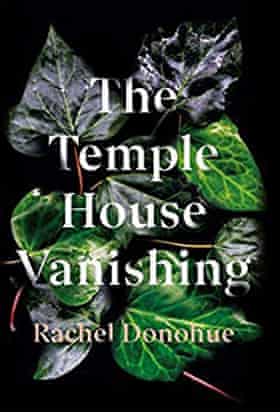
Irish writer Rachel Donohue’s debut, The Temple House Vanishing (Corvus, £12.99), begins a quarter of a century after the disappearances of 16-year-old schoolgirl Louisa and charismatic young art teacher Mr Lavelle, with Louisa’s erstwhile best friend Victoria leaping to her death from the top of an office block. The narrative baton is passed between Louisa (who, with Victoria, was a pupil at an elite Catholic boarding school) and an unnamed journalist – a local woman who grew up living opposite the missing girl’s house, who is writing an article to mark the 25th anniversary. Readers who are only in it for the big twist should look elsewhere, because this is all about atmosphere: the Victorian mansion on the high cliff; the hermetic world with countless petty rules, convinced of its own superiority; the hormones and hysteria; the young teacher who fills his students’ heads with romantic notions and, wanting to be adored, fails to understand the terrifyingly all-consuming nature of adolescent passion. With shades of everything from The Prime of Miss Jean Brodie and Frost in May to Picnic at Hanging Rock and The Secret History, this is subtle, intriguing and very well written.
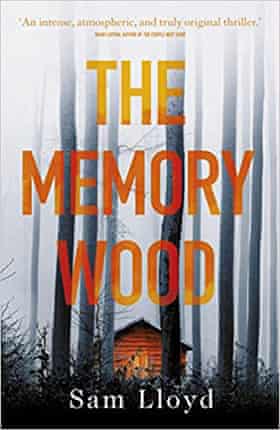
Equally atmospheric is Sam Lloyd’s first novel, The Memory Wood (Bantam, £12.99). Abducted from a chess tournament in Bournemouth, 13-year-old prodigy Elissa is imprisoned in a cellar in a house in the mysterious “Memory Wood”, where she is visited by strange, lonely Elijah. He isn’t quite all there, but Elissa is clever and resourceful beyond her years – just as well, because although Elijah is desperate to keep his new friend she must persuade him to help her escape by indulging his Hansel & Gretel fantasy while putting the strategies and gambits of the chessboard to good use. DS Mairéad McCullagh’s investigation makes a serviceable parallel narrative, and the villains are Stephen King-lite, but what makes this book special is the marvellously executed subterranean power game. Superbly creepy, with an unexpected twist, this is a very grim modern fairytale.
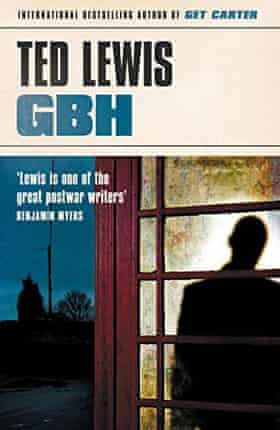
Another title that’s not for the squeamish is Ted Lewis’s last novel, GBH, reissued by No Exit (£9.99). Although Lewis is best known for Jack’s Return Home (the novel which was filmed as Get Carter starring Michael Caine), GBH, which was first published in 1980, is generally considered to be his finest book. Hardcore porn king George Fowler is trying to discover who’s skimming money from his business, while wife Jean, who discovered the rake-off, gets her kicks from watching him and his henchman Mickey torturing suspects. The time-slip narrative cuts between Fowler’s gangster past in London and – after things have gone very wrong indeed – his present, when he’s bug-eyed with paranoia and hiding out in an off-season holiday resort on the Lincolnshire coast. This is vintage British pulp fiction at its fast, furious and thoroughly sleazy best.